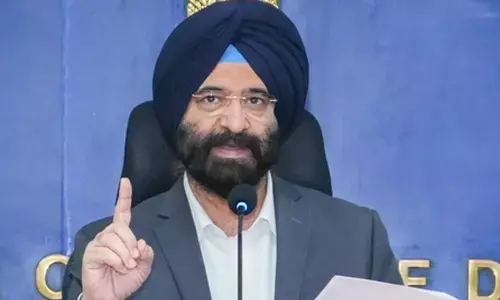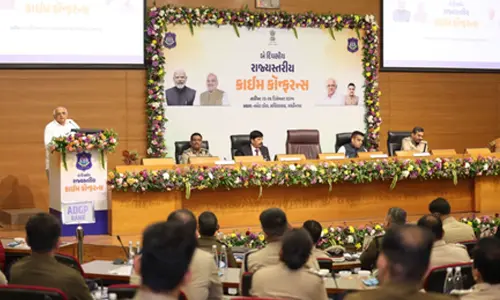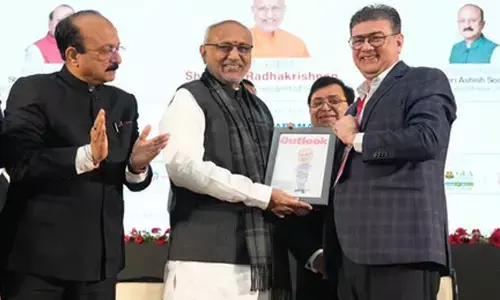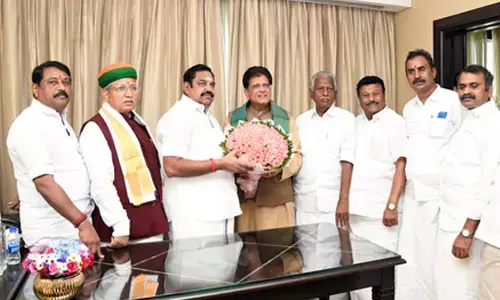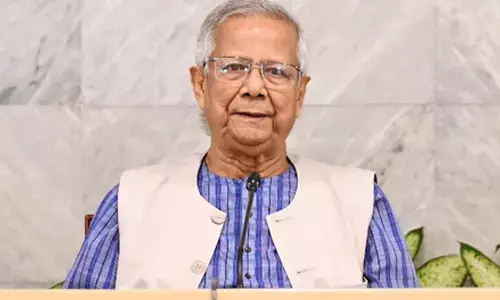Covid report calls for early warning system to tackle future pandemics
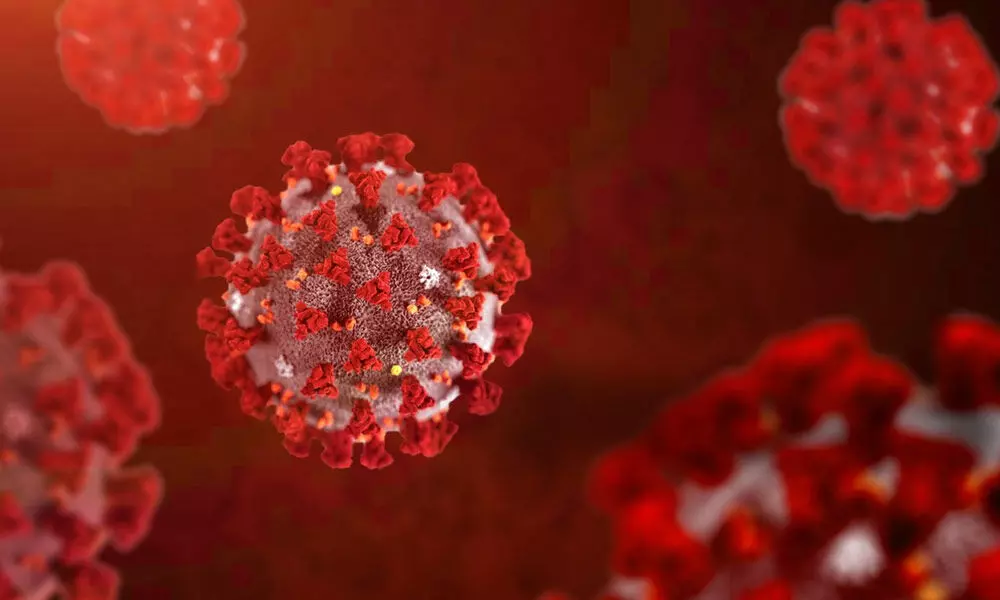
Covid is exposing women to greater health risks
The Covid-19 pandemic spread in the entire world by the first quarter of 2020, unleashing a global bio-socio-economic chaos
Bengaluru: The Covid-19 pandemic spread in the entire world by the first quarter of 2020, unleashing a global bio-socio-economic chaos. The pandemic has presented a myriad of social, economic, political and strategic implications, inflicting enormous challenges on individuals, societies and States. The Independent Commission on Development and Health in India (ICDHI) has come out with a report "COVID-19 Global & National Response: Lessons for the Future" that address the ever evolving health, economic and societal crisis. The report was prepared by distinguished groups of professionals and researchers from around the world and is an attempt to capture the experiential learning while combating the grim reality of Covid-19.
The report highlights the pandemic through two major sections- global and national response. The global response includes an inter country comparative analysis, strategies of prevention and management, a kaleidoscope of Covid-19 stories from around the world, role and response of international organisations including the WHO, impact of the pandemic on the global economy, social consequences, threat to democracy, global testing scenario and development of drugs and vaccines across the world.
The second half of the report deals with the story of the pandemic in India. National response begins with a comprehensive situational analysis, followed by government's response to the pandemic, the role played by key organisations such as ICMR, IDSP, NDMA and para-military forces in combating Covid-19, Indian testing scenario, role of Ayurveda, impact on Indian economy, mental health crisis, impact on learning outcomes, correlation between Covid-19 and substance abuse, review of telemedicine adopted during Covid-19, need for community based grassroots preparation and legal framework, long term management of pandemic, holistic health care model and snapshots from the States. Overall, the report is an attempt to capture our experiential learning while combating the grim reality of coronavirus.
The report highlighted the need for a strong global weather station to monitor emerging health emergencies well in advance. The World Health Organisation is supposed to leverage its strong global presence to promptly respond to health emergencies. However, in recent years, it's not so pro-active to the outbreak of Ebola and the recent Covid-19 crisis denting its credibility. Better preparedness is crucial to face future pandemic risks. This would require globally coordinated mechanisms; such as early warning systems, and common protocols for travel and border control restrictions. Also needed are agreed global frameworks for emergency preparedness. Enhanced efforts to address the global shortage of health workers through initiatives such as the ILO, OECD, and the WHO working for health programme.
"A number of drugs have been repurposed or in the process mainly due to the efforts of countries to find a cure for coronavirus. The WHO should have taken the lead in quickly picking up candidate drugs which could be put through clinical trials for use as repurposed drugs. Its time consuming procedures have not helped to make life saving drugs available for moderate serious cases resulting in avoidable mortality," said J V R Prasada Rao, UN Secretary General's Special Envoy for AIDS, Asia & the Pacific; Former Secretary, Ministry of Health and Family Welfare, Government of India.
The report further called for strengthening the key government organisations. Though Indian organisations like NCDC, ICMR etc have been consistently making a lot of efforts to address the challenges posed by the unprecedented pandemic, there was a significant scope for better practices. There should be optimal utilisation of Disaster Management Framework, revitalising the role and responsibilities of NCDC for disease control & management effectively as well as strengthening of the Central, State and District Surveillance Units, strengthening of IDSP with adequate financial and human resources, along with statutory status, inclusion of basic training on health and medical emergency in the syllabus of police training schools and support to pandemic focused research to already existing research institutes.
The health care system in India is still developing and continues to face challenges of inadequate human resources, poor infrastructure and quality of services, especially visible in rural health care. These gaps have become more apparent in the current health crisis. This is coupled with a lack of transportation in rugged terrains that may exclude many from seeking timely care. A recent study conducted by the researchers at Centre for Policy Research (CPR), in New Delhi reveals that at least two of every three doctors in rural India are informal providers of care, with no qualifications in the modern system of medicine. According to the World Health Organisation (WHO) report "The Health Workforce in India'', 57.3 percent of the allopathic doctors in the country ave no medical qualifications.
Alok Mukhopadhyay, Convener, Independent Commission on Development and Health in India – "Due to various factors, such as shortage of human and financial resources, patient overload, the health providers are so preoccupied with the clinical work that they hardly get any time for health promotion, disease prevention & management and risk communication. There is a missing vital link between the community and health system. Keeping this reality in mind, it is becoming obvious that we need to create a Public Health Cadre on the pattern of IAS with public health specialists at all levels of the healthcare system, which will take care of promotive and preventive aspects of health care".
The report further added that while the urban areas are filled with tertiary care and private healthcare facilities, there is limited access to primary healthcare facilities, especially for the vulnerable communities living in urban slums. It is an opportune time to revisit and strengthen the National Urban Health Mission (its potential largely remains untapped). The Government needs to invest in building and strengthening the public health care infrastructure in tier II and III cities, which should reinforce all the three pillars of health system (primary, secondary and tertiary), through existing schemes of the Government such as NUHM, Ayushman Bharat, and Health and Wellness Centres (HWCs).
The current crisis calls for the creation of a sound legal structure/reforms to replace the antiquated Epidemic Disease Act of 1897, which will help to deal more effectively with public health emergency, especially pandemics of the scale of COVID-19. In this situation, the draft National Health Bill (2009) is a beacon of hope, for it embraces all the tenets of health and health care, including the underlying factors and hope to aspire towards the aim of 'Health for All'. It is also important that the Government should give due credence to the Right to Health, and treat it as an inextricable part of the fundamental Right to Life.
Telemedicine and virtual care have become an important tool in caring for patients at COVID -19 pandemic time, while keeping health care workers and patients safe. It is thus, imperative that telemedicine be implemented equitably, and to the highest ethical standards, to maintain the dignity of all individuals as well as to ensure that differences in education, language, geographic location, physical and mental ability, age, and sex will not lead to marginalisation of care
"As we look ahead beyond the acute phase of the pandemic, the world will need to address an economic recession far greater than anything we have encountered before. A rise in the burden of clinically significant mental health problems is expected as an impact of this economic recession, the widening of inequalities in countries, the continuing uncertainties about future waves of the epidemic and the physical distancing policies. This would not be surprising, given the strong association between poverty, inequality and poor mental health" - Prof. Vikram Patel, Department of Global Health and Population, Harvard School of Public Health.
Despite the fact that the fiscal condition has become quite precarious post the pandemic, it is imperative to strengthen our public healthcare system. In this direction, a recommendation would be the introduction of hypothecated tax (or earmarked tax) for raising and channelling resources for larger health expenditure. The revenue generated from hypothecated tax can only be spent on designated programmes, thus, assuring the public of how their money is being utilized for public welfare. By introducing strict accountability as well as prudent financial planning and management, these taxes can be accommodated in the Indian economy.









